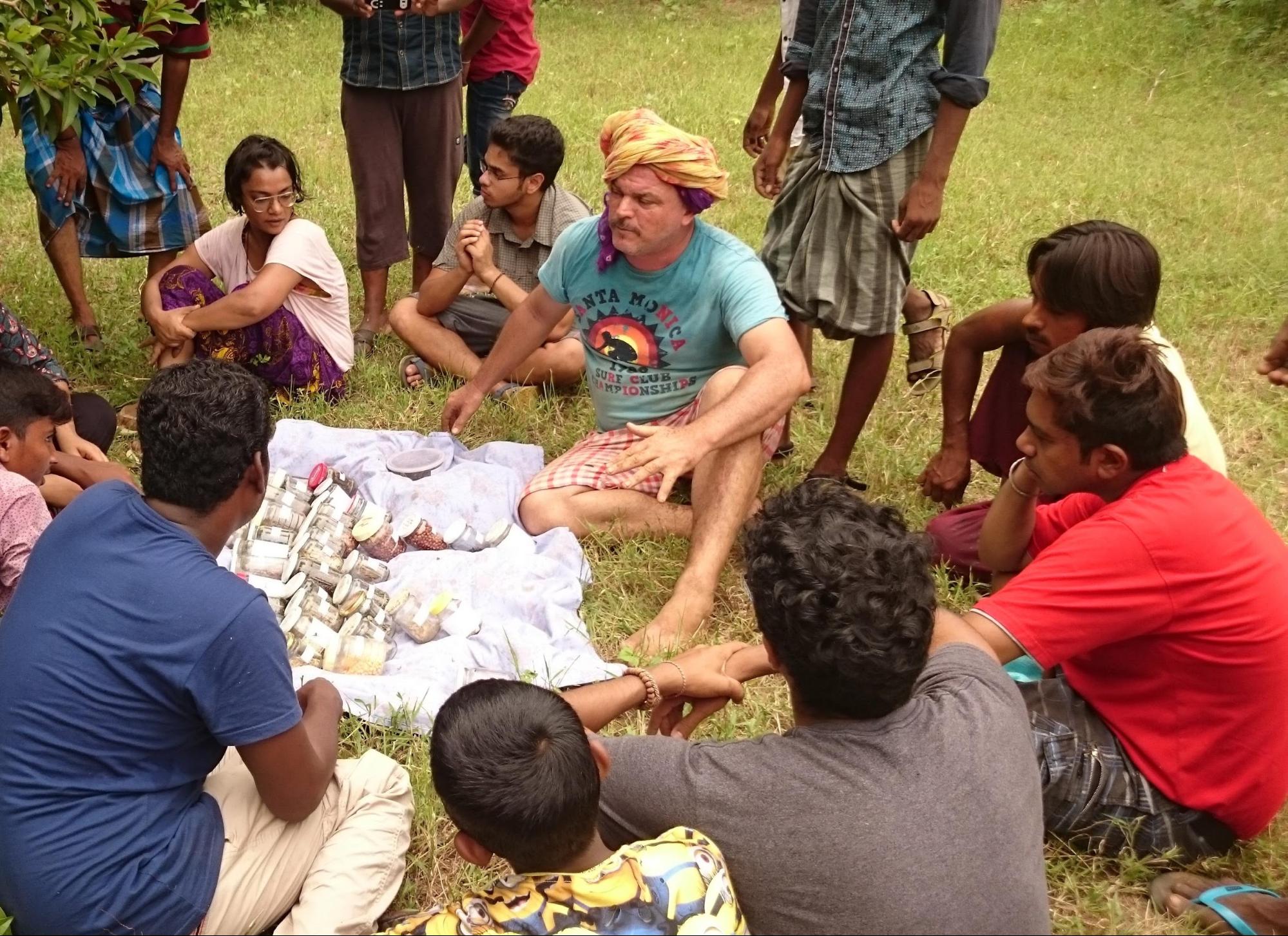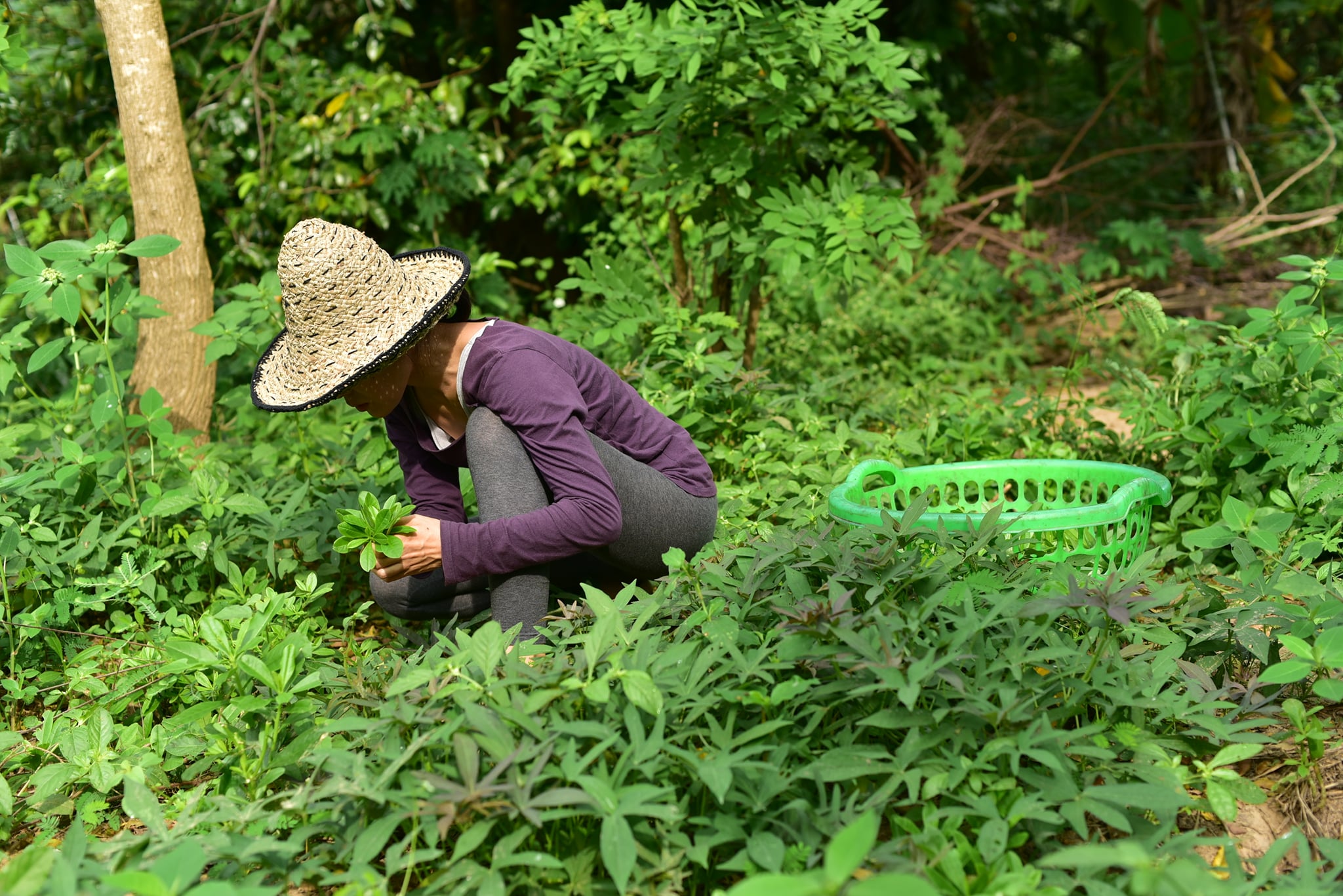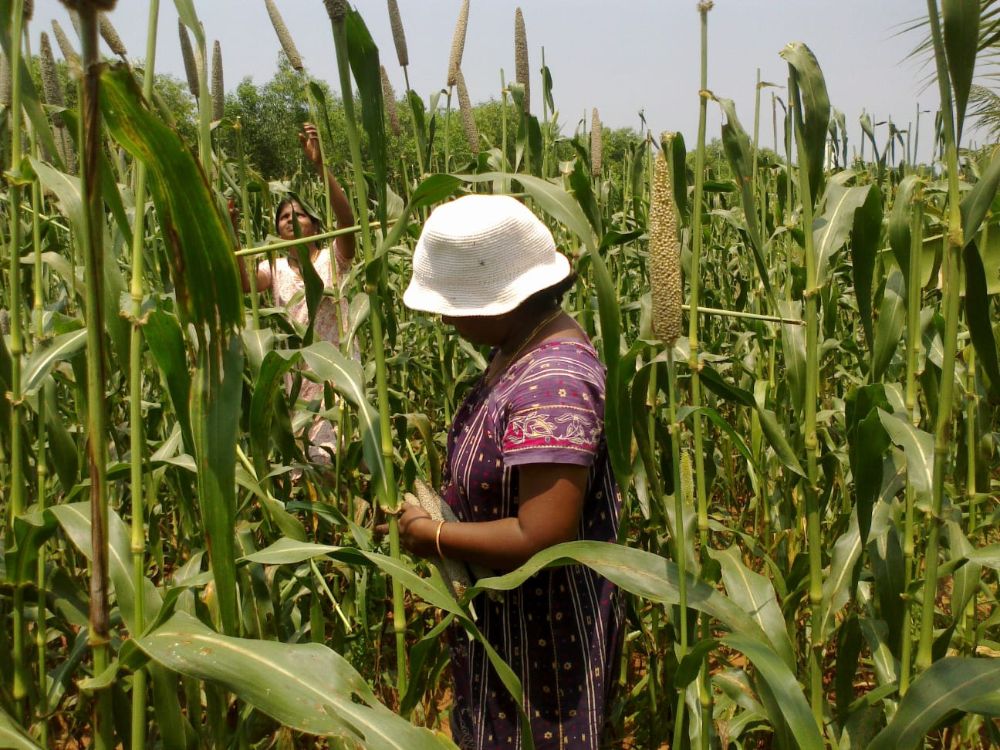Auroville Farm Group (AVFG)
Aurovilians primarily engaged in growing Auroville’s food are united under the Auroville Farm Group, each working with some combination of orchards, crop fields, vegetable gardens and/or dairy. The Auroville farm group offers mutual support and cooperation among the various farms in Auroville while facilitating problem-solving and funding appeals. It takes collective responsibility for its members and represents them in the community.
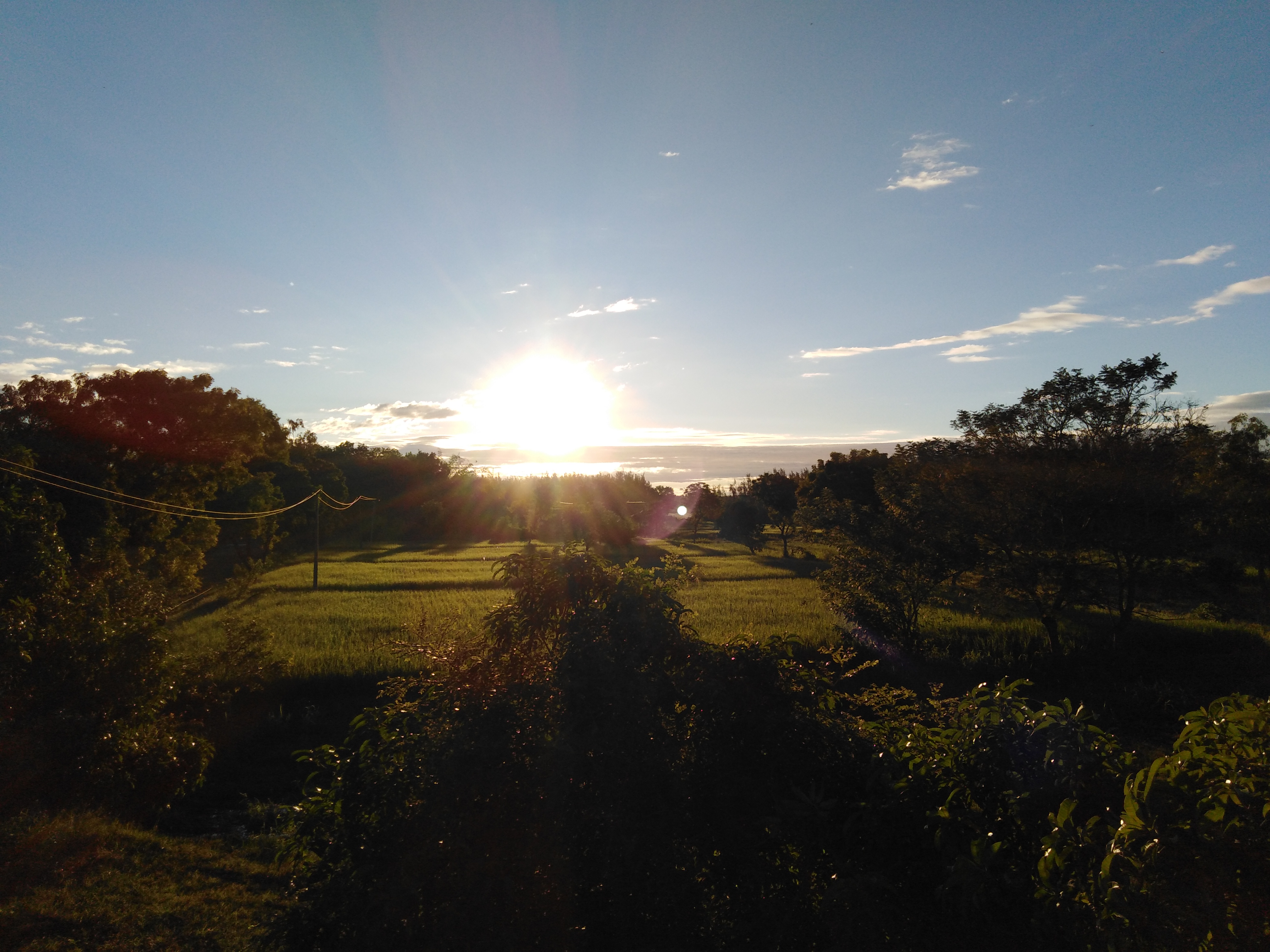
The Auroville farm group facilitates mutual support and cooperation among the various farms at Auroville. It takes collective responsibility for its members and represents them in the community. It also facilitates problem-solving and common funding appeals. The Farm Group persuaded the Economy Group to classify farming as part of the service sector of Auroville, and this led to farmers receiving a cash allowance from the Central Fund and some security against financial losses.
Auroville farms vary greatly in size and character. Those primarily engaged in growing Auroville’s food are united under the Auroville Farm Group, each working with some combination of orchards, crop fields, vegetable gardens and/or dairy. The farmers study the relationship between traditional farming and modern agriculture and make use of eco-friendly technologies such as windmills (for water), solar energy, micro-sprinklers and methane gas collectors. The farms use a wide variety of ecologically oriented farming philosophies, such as traditional organic, permaculture, biodynamic, natural farming, hydroponics, etc., and research is being done in a number of fields.
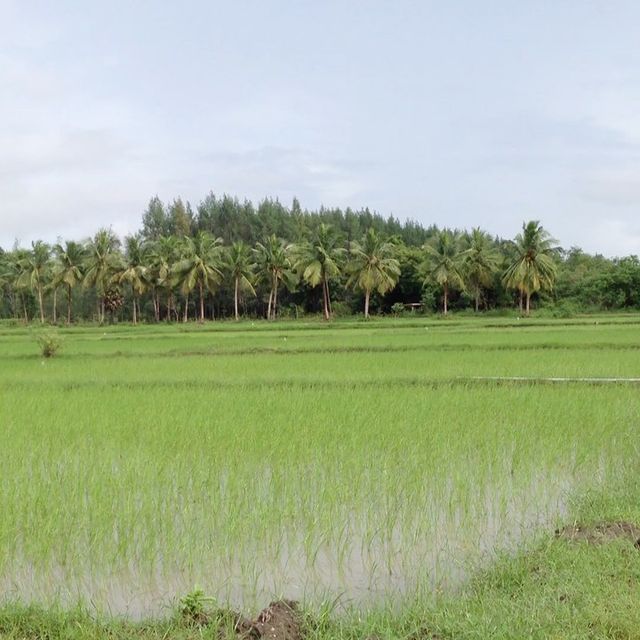
The vision for the Auroville Farm Group is “a healthy and conscious farming system, integrated with and providing food for the community”. They aim to grow as much healthy food as possible for Auroville in ways that are sustainable for the earth, the community, and the bioregion.
The Farm Group constantly strives toward the following goals:
- Serving the community by growing healthy produce in response to the needs of the community; Informing and involving them in the process.
- Improving quality and increasing production, whilst sustaining the environment by farming ecologically.
- Efficiently managing the farms with transparent and detailed record-keeping, and making farms financially viable with support from the community and outside interested parties, while moving towards a collective economy.
- Promoting sustainable farming practices locally and globally. Increasing knowledge, awareness and practice of sustainable organic farming in Auroville and beyond. Providing education and experience for individuals, both within and outside Auroville, wishing to learn about sustainable farming.
Presently, the Auroville Farm Group consists of 21 farms spread across approximately 372 acres of land. These are managed by about 35 Auroville residents, who employ an average of 200 full-time workers from the neighbouring villages.
Their activities are organized in direct response to Auroville’s food needs, and include:
- Coordination of production,
- Sharing of resources
- Setting of prices
- Joint planning
The greatest demand for vegetables is between December and March, coinciding with the guest season and the cool season when the largest variety of vegetables can be grown. At other times of the year, particularly during the hot season, the demand decreases, and less variety can be grown. With appropriate planning, improvements in farming and a shift to local food consumption, Auroville could become self-sufficient in its vegetable production.
Orchards tend to be less labour-intensive than grains and vegetables, and there has been a tendency to grow fruit rather than food staples.
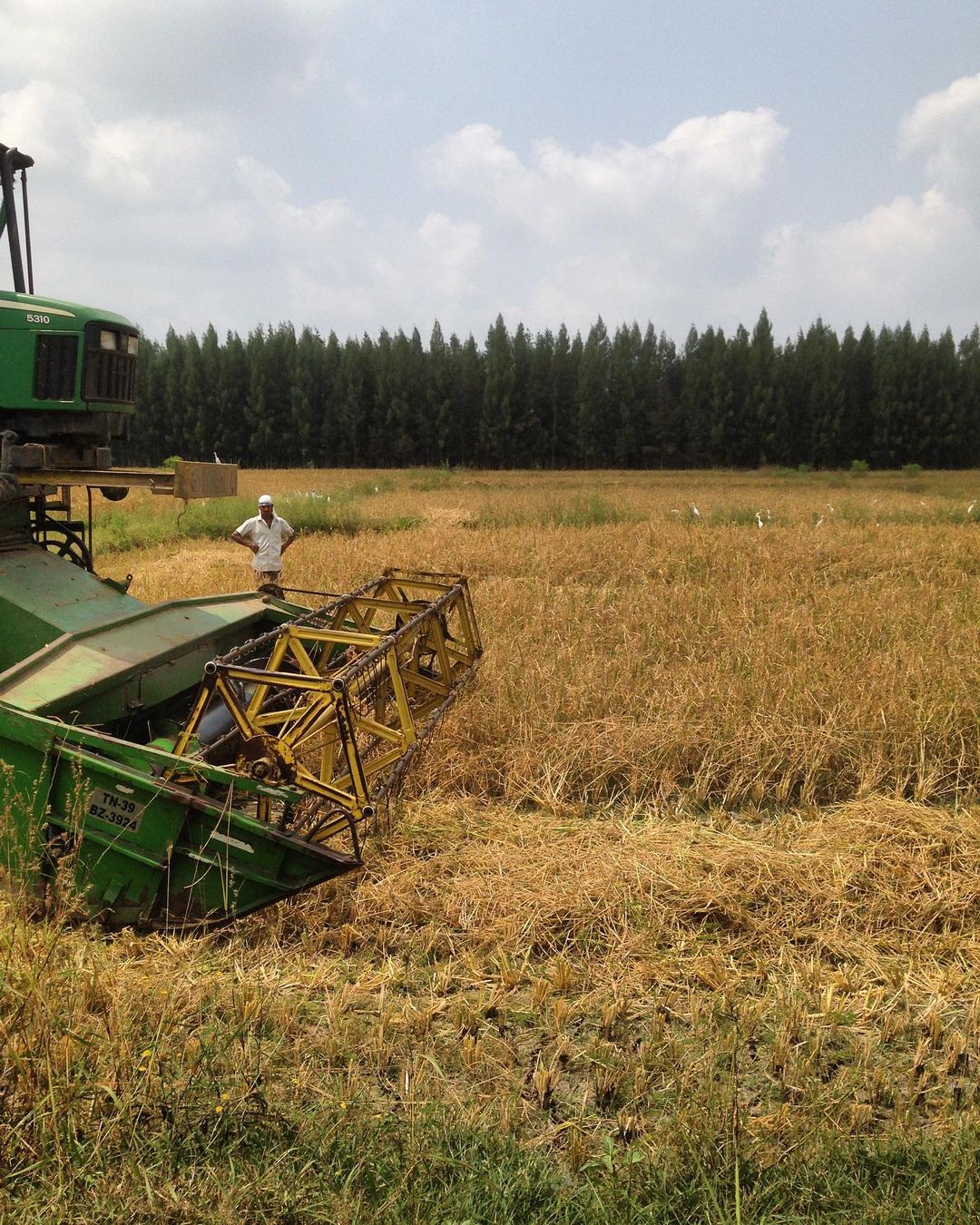
Growing food for Auroville is the central focus for all farms although most also carry out other activities such as food processing and education to make the farms economically viable.
While a lot has been learned by the pioneering ‘down to earth' farmers that is well worth sharing with students and experts; on the other hand, there are many ways the farms can be improved with the help of experts and advanced students. This makes the increased coordination and unification of the farms a practical and synergistic goal.
The Farm Group strongly feels that local issues, such as the cultivation of food, should be part and parcel of the curriculum at Auroville schools. The deeper vision behind Food Link, an activity of the Auroville Farm Group is to create community by linking the residents of Auroville to the farmers through educational initiatives. The efforts of the past, notably by Solitude Farm and Buddha Garden, to involve students in creating vegetable gardens in Auroville schools are currently being shaped into a more sustained initiative.
Farming in Auroville began in 1969 at the very beginning of the community as Mother purchased farming land indicating that the original vision of Auroville included farming in its framework. Many residents became involved in food production out of necessity and some operated larger farms. In 1978, the first formal attempt to organize Auroville farms was made and a cooperative was formed, which consisted of 13 farms. In 1994, another initiative was taken to reorganize the farms in Auroville, which became the Auroville Farm Group. Farmers joined together to share resources and coordinate operations and increase productivity through planning. In 2008, FoodLink was set up to distribute the Auroville farm and forest produce.
FoodLink is Auroville’s central collection and distribution point for Auroville’s farm produce, and thus a vital link between farms and the community. From here, the fresh organic food is supplied to Auroville’s collective kitchens, restaurants, schools, food processors, and the PourTous outlets, PTPS & PTDC. Occasional surplus is sold to customers outside Auroville. Since Auroville is not self-sufficient in most food categories, FoodLink invites organic farmers in the bioregion to supply to Auroville, with the vision of creating a mutually supportive network in the service of healthy food and a healthy environment. A current project is the development of an efficient crop-planning system for Auroville’s farms, in tune with the food requirements of the community.
See Also
